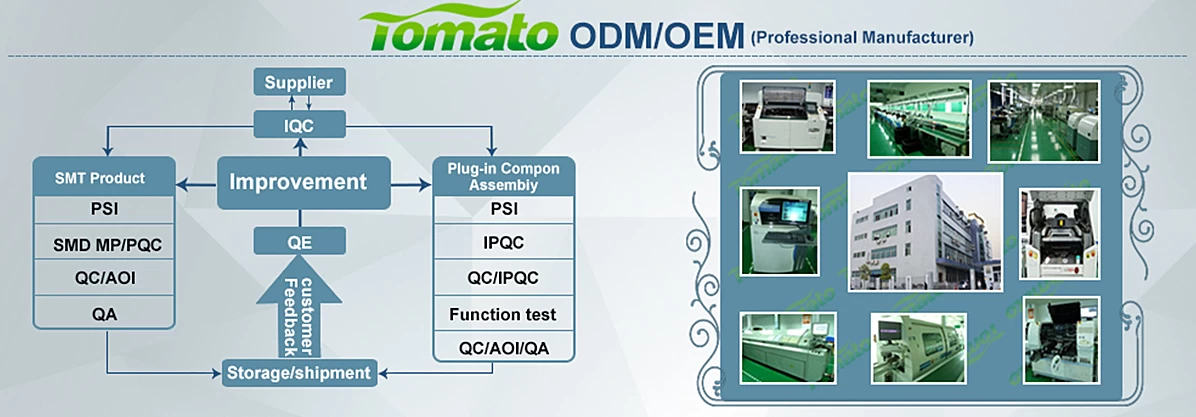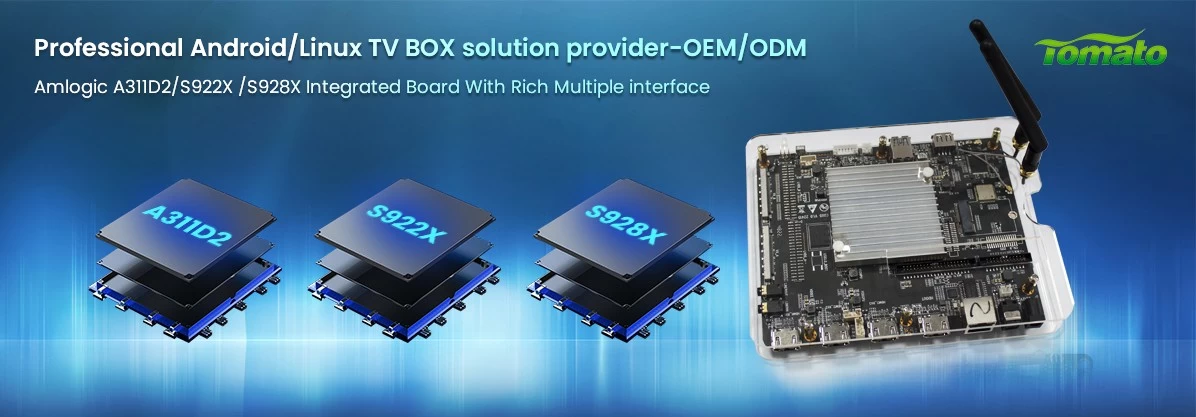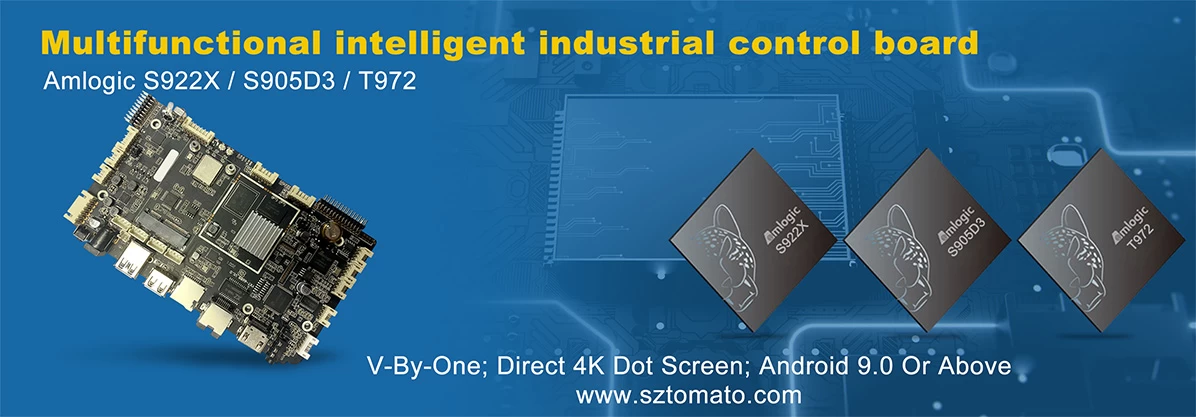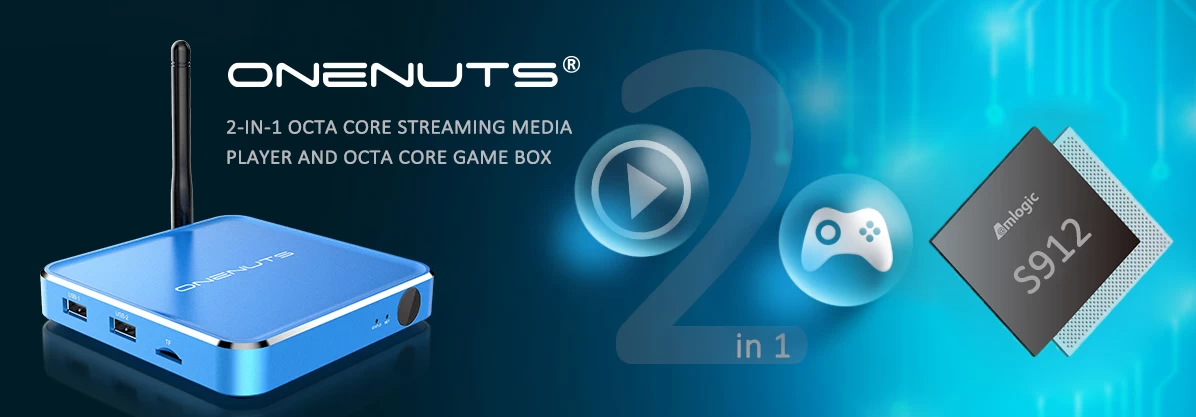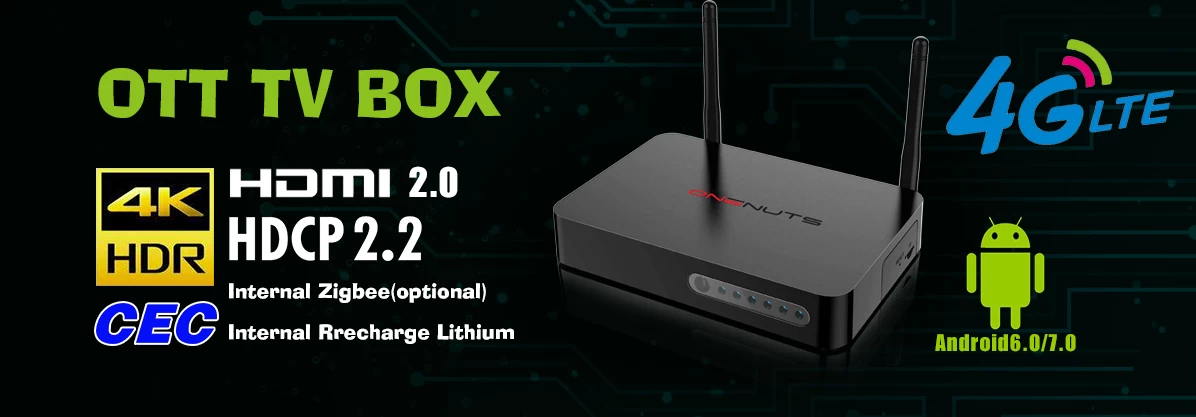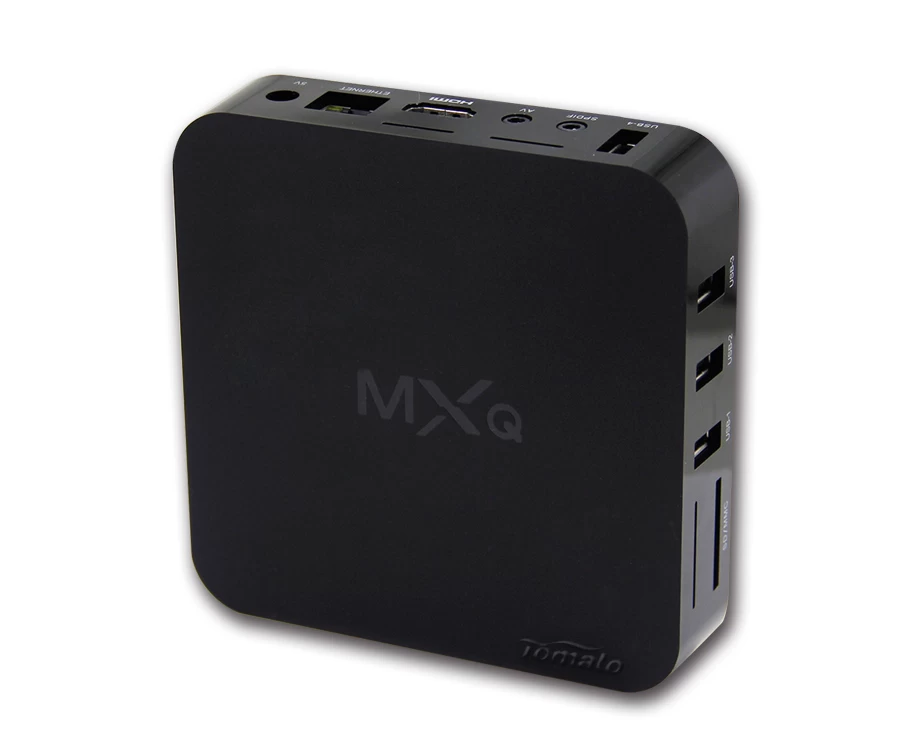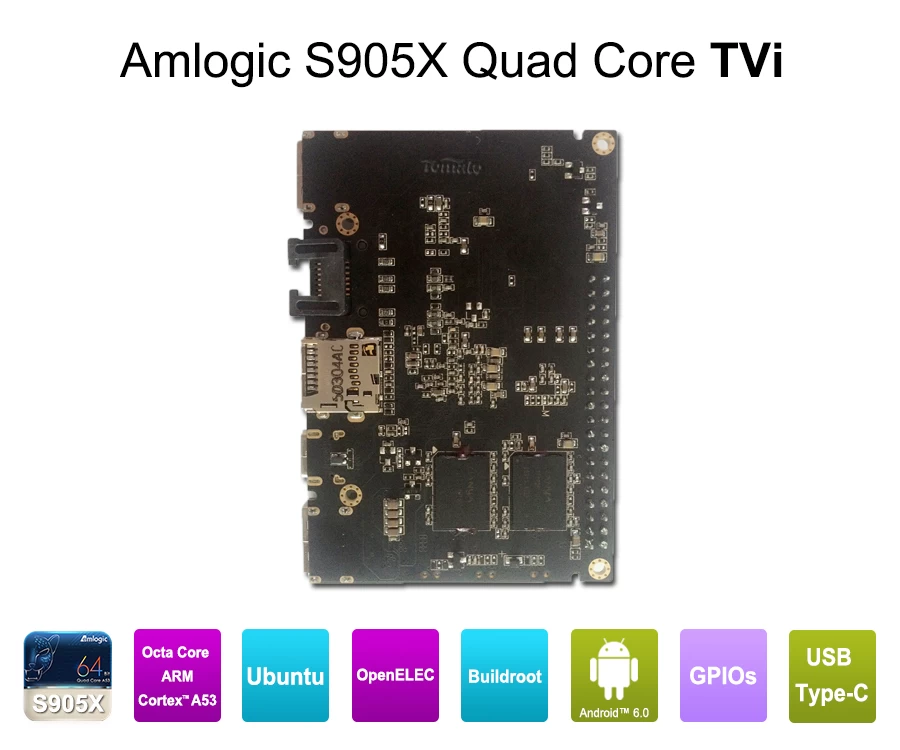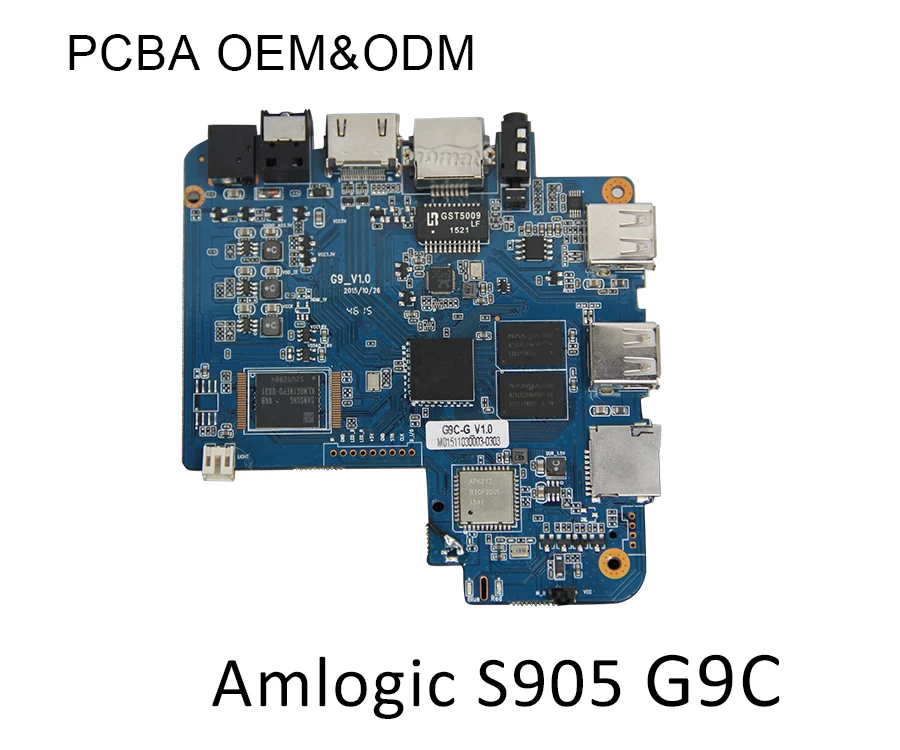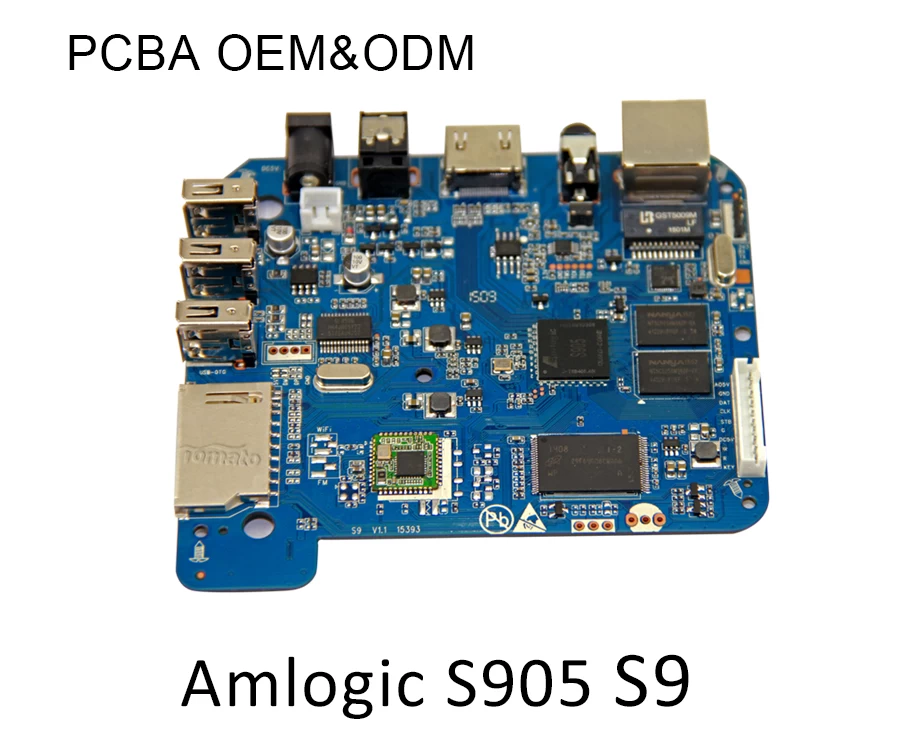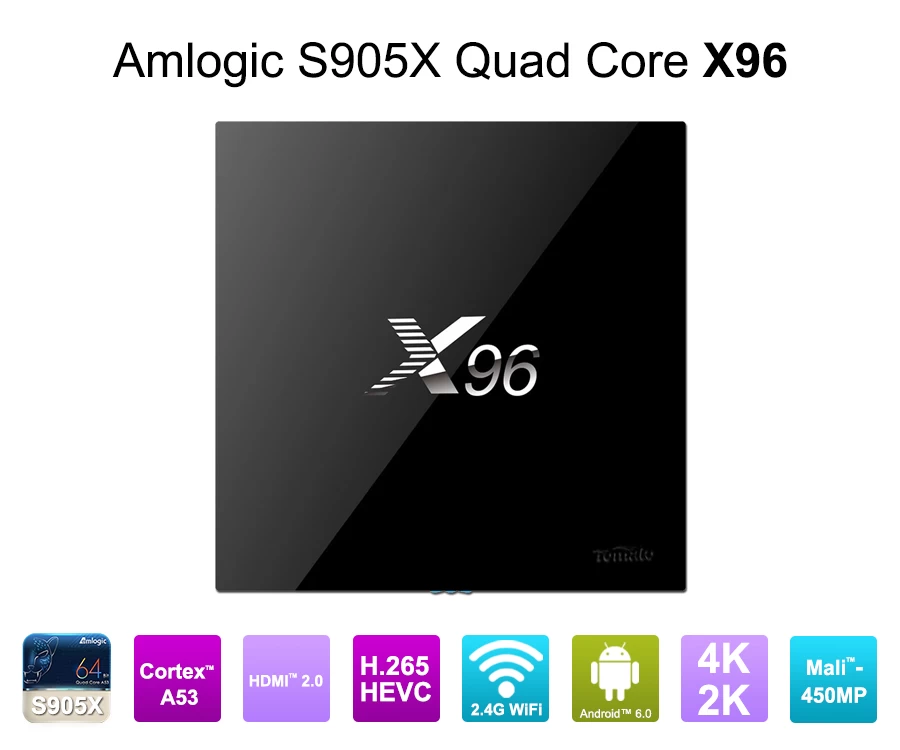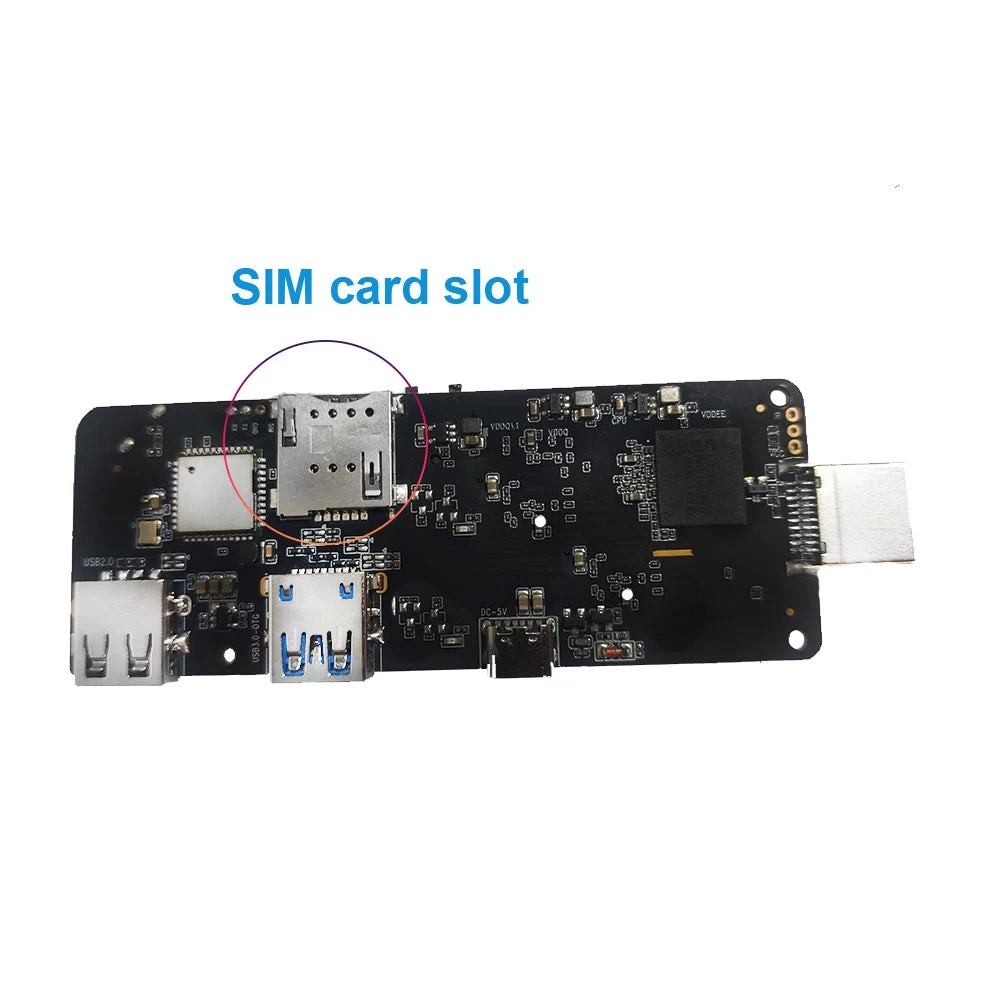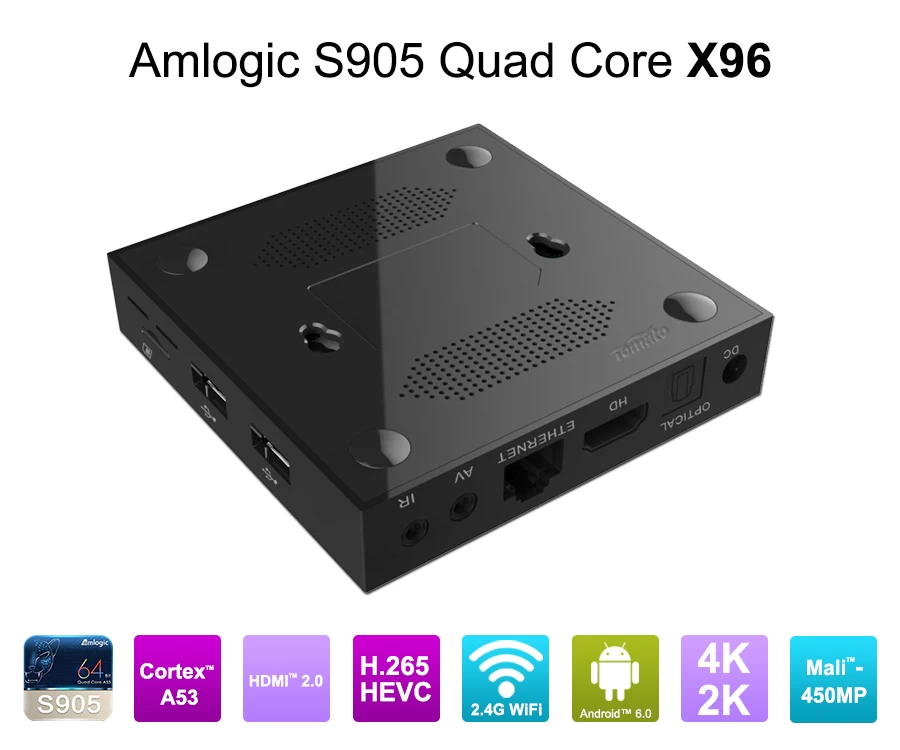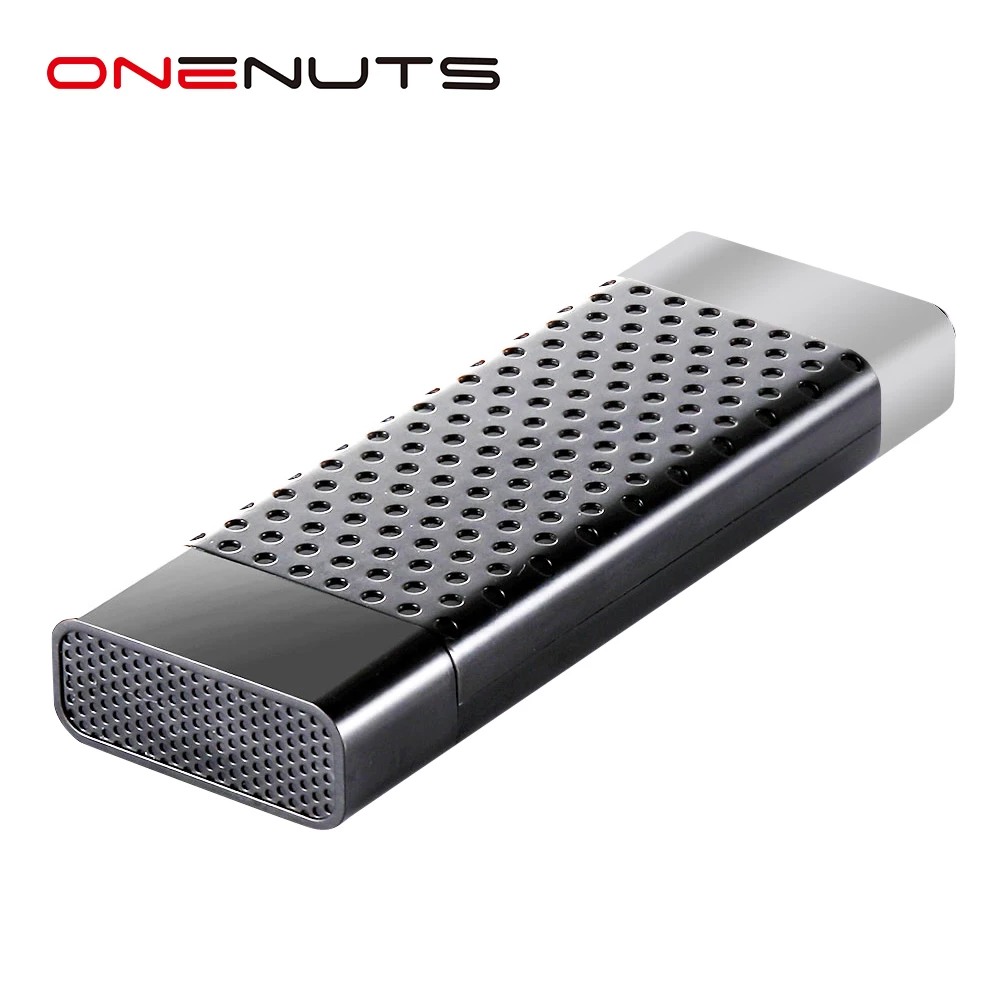Amlogic S905X5M, Amlogic S905Y5, and Amlogic S905Y4: Key Differences and Applications
| Parameter | Amlogic S905X5M | Amlogic S905Y5 | Amlogic S905Y4 |
|---|---|---|---|
| Processor | Amlogic S905X5M | Amlogic S905Y5 | Amlogic S905Y4 |
| ISA | ARMv8.2-A (64-bit) | ARMv8.2-A (64-bit) | ARMv8.2-A (64-bit) |
| Microarchitecture | Cortex-A55 | Cortex-A55 | Cortex-A35 |
| Family | S9 Gen 4 | S9 Gen 4 | N/A |
| Part Number(s) | S905X5M | S905Y5 | S905Y4 |
| Lithography | 6 nm | 12 nm | 12 nm |
| Cores | 4 | 4 | 4 |
| Threads | 4 | 4 | 4 |
| Base Frequency | 2.5 GHz | 1.5~1.7 GHz | 1.8~2.0 GHz |
| Drystone MIPS | 30,000 DMIPS | 20,000 DMIPS | N/A |
| High Performance Cores | 4× Cortex-A55 @ 2.5 GHz | 4× Cortex-A55 @ 2.0 GHz | 4× Cortex-A35 @ 1.8 GHz |
| Max Memory Capacity | 4 GB | 4 GB | 4 GB |
| Memory Types | DDR4/LPDDR4 | DDR3/4, LPDDR4 | DDR3/4, LPDDR4 |
| GPU Integrated Graphics | ARM Mali-G310 V2 | ARM Mali-G31 MP2 | ARM Mali-G31 MP2 |
| GPU Clock | 850 MHz | 850 MHz | 850 MHz |
| 3D Graphics Processing | OpenGL ES 3.2, Vulkan 1.2, OpenCL 2.0 | OpenGL ES 3.2, Vulkan 1.2, OpenCL 2.0 | OpenGL ES 3.2, Vulkan 1.1, OpenCL 2.0 |
| GPU FP32 Floating Point | 40 GFLOPS | 20.8 GFLOPS | 20.8 GFLOPS |
| Socket | SoC | ||
| AI-SR | Inline AI-SR | N/A | N/A |
| Crypto Engine | AES, TDES, SHA-1/SHA-2/HMAC, SM4, RSA | ||
| Security | TrustZone, Secure Boot | ||
| Max Display Resolution | 4K @ 60fps | ||
| Video Decoding | H.265, AV1 4K@60fps, H.264 4K@30fps | H.265, H.264, AV1 4K@60fps, H.264 4K@30fps | H.265, H.264, AV1 4K@60fps, H.264 4K@30fps |
| Video Encoding | H.264/H.265 4K@60fps | H.265/H.264 1080p@60fps | H.265/H.264 1080p@60fps |
| PHY | External 1000Mbps PHY & Internal 10/100 PHY | Internal 10/100 PHY | Internal 10/100 PHY |
| Display | HDMI 2.1a, CVBS | HDMI 2.1a, CVBS | HDMI 2.1, CVBS |
| Audio | DAC, SPDIF, I2S, PDM | ||
| Flash | EMMC5.2 | EMMC5.2 | EMMC5.0 |
| Interface | USB 2.0 | USB 2.0 | USB 2.0 |
Amlogic has developed several SoCs (System on Chips) tailored for TV box applications. Among them, the S905X5M, S905Y5, and S905Y4 stand out for their unique features and capabilities. This article provides a comprehensive comparison of these three processors, highlighting their differences and suitable applications.
1. Processor Architecture and Performance
-
S905X5M: Built on a 6nm process, this quad-core ARM Cortex-A55 CPU operates at up to 2.5 GHz. The advanced lithography ensures low power consumption while delivering high performance, making it suitable for demanding tasks like 4K video playback and gaming.
-
S905Y5: Also featuring a quad-core ARM Cortex-A55 architecture, this processor is manufactured using a 12nm process and runs at frequencies between 1.5 to 1.7 GHz. It's designed for standard TV box applications where balanced performance and efficiency are required.
-
S905Y4: This SoC utilizes a quad-core ARM Cortex-A35 CPU with clock speeds ranging from 1.8 to 2.0 GHz. While the Cortex-A35 cores are more power-efficient, they offer slightly lower performance compared to the Cortex-A55, making the S905Y4 ideal for energy-conscious applications.
2. Graphics Processing Unit (GPU)
-
S905X5M: Equipped with the ARM Mali-G310 V2 GPU clocked at 850 MHz, this GPU is based on the Valhall architecture, offering enhanced graphics and floating-point processing capabilities. It supports modern graphics APIs like OpenGL ES 3.2, Vulkan 1.2, and OpenCL 2.0, ensuring smoother rendering of complex 3D graphics and an improved gaming experience.
-
S905Y5: Features the ARM Mali-G31 MP2 GPU, also running at 850 MHz. While it supports similar graphics APIs, its performance is more suited for standard graphical tasks and casual gaming.
-
S905Y4: Similar to the S905Y5, it incorporates the ARM Mali-G31 MP2 GPU at 850 MHz, providing adequate performance for everyday multimedia applications.
3. Video Decoding and Encoding Capabilities
-
S905X5M: Supports decoding of H.265 and AV1 formats at 4K@60fps, and H.264 at 4K@30fps. For encoding, it handles H.264/H.265 video at 4K@60fps, making it versatile for high-definition content creation and playback.
-
S905Y5: Capable of decoding H.265, H.264, and AV1 formats at 4K@60fps, and H.264 at 4K@30fps. It supports H.265/H.264 encoding at 1080p@60fps, suitable for standard high-definition applications.
-
S905Y4: Offers similar decoding capabilities as the S905Y5, with encoding support for H.265/H.264 at 1080p@60fps, catering to typical HD content needs.
4. AI Super Resolution (AI-SR)
-
S905X5M: Integrates AI-SR technology, which combines various noise reduction and deinterlacing techniques to enhance low-resolution images. This results in clearer and smoother visuals, especially beneficial for upscaling content to higher resolutions.
-
S905Y5 and S905Y4: Do not feature dedicated AI-SR capabilities, relying on traditional upscaling methods.
5. Connectivity and Interfaces
-
S905X5M: Supports external 1000Mbps PHY and internal 10/100 PHY, HDMI 2.1a, CVBS, USB 2.0, and various audio interfaces including DAC, SPDIF, I2S, and PDM. It also supports eMMC 5.2 for storage.
-
S905Y5 and S905Y4: Both come with internal 10/100 PHY, HDMI 2.1a (S905Y5) or HDMI 2.1 (S905Y4), CVBS, USB 2.0, and similar audio interfaces. The S905Y5 supports eMMC 5.2, while the S905Y4 supports eMMC 5.0.
6. Applications
-
S905X5M: Ideal for high-performance TV boxes requiring robust processing power, advanced graphics capabilities, and AI-driven image enhancements. Its ability to support 4K@60fps video encoding and decoding makes it suitable for premium multimedia devices.
-
S905Y5: Suited for mid-range TV boxes where balanced performance and efficiency are desired. It handles 4K video playback effectively and supports standard gaming applications.
-
S905Y4: Best for entry-level or energy-efficient TV boxes focusing on standard high-definition content playback with lower power consumption requirements.
In summary, the choice among the Amlogic S905X5M, S905Y5, and S905Y4 processors depends on the specific performance needs and application scenarios, ranging from high-end multimedia devices to energy-efficient TV boxes.

